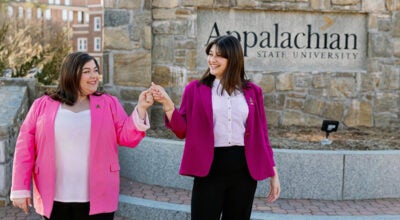Woodland rejects solar farm
Published 9:53 am Tuesday, December 8, 2015
WOODLAND – The Woodland Town Council rejected a proposal to rezone a section of land north of town to M2 (manufacturing) from RA (residential/agricultural), essentially denying approval of a solar farm.
Newly sworn in councilman Cecil Harkey voted against the motion to reject rezoning the land, while council members David Cooper, Ron Lane, and Pat Liverman voted to approve it following public comments against the rezoning.
The Planning Board had recommended the property be rezoned to allow Strata Solar Company to build a solar farm off U.S. highway 258.
Three other solar farms were previously accepted by the town council, with one now in the process of installing solar panels.
The solar farm companies are seeking placement around Woodland because it has an electrical substation nearby where the solar power generated by the panels can be added to the electrical grid.
Strata’s proposal would have competed encircling the Woodland substation.
Later in the meeting, the Town Council voted for a complete moratorium on solar farms.
During the public comment period preceding the rezoning vote, citizens expressed distrust and fear of the solar panels.
Jean Barnes said she represented many citizens who rejected any more solar farms coming to the Woodland area and presented a petition to the council.
Barnes asked that any future solar farm requests be placed on a referendum so the citizens can make the decision.
Mary Hobbs has been living in Woodland for 50 years and said she has watched it slowly becoming a ghost town with no job opportunities for young people.
She said her home is surrounded by solar farms and is no longer worth its value because of those facilities.
She added that the only people profiting are the landowners who sell their land, the solar companies, and the electric companies.
The next speakers were Bobby and Jane Mann.
Jane Mann said she is a local native and is concerned about the natural vegetation that makes the community beautiful.
She is a retired Northampton science teacher and is concerned that photosynthesis, which depends upon sunlight, would not happen and would keep the vegetation from growing. She said she has observed areas near solar panels where vegetation is brown and dead because it did not receive enough sunlight.
She also questioned the high number of cancer deaths in the area, saying no one could tell her that solar panels didn’t cause cancer.
“I want to know what’s going to happen,” she said. “I want information. Enough is enough. I don’t see the profit for the town.
“People come with hidden agendas,” she said. “Until we can find if anything is going to damage this community, we shouldn’t sign any paper.”
Bobby Mann said he watched communities dry up when I-95 came along and warned that would happen to Woodland because of the solar farms.
“You’re killing your town,” he said. “All the young people are going to move out.”
He said the solar farms would suck up all the energy from the sun and businesses would not come to Woodland.
Strata then addressed the council and audience. Several company representatives, to include Beth Trahos, Sam Judd and Brent Niemann, spoke about solar farms.
They changed the plan to increase setback from the road and said the solar farm would be have substantial amounts of vegetation.
Trahos said solar farms are proven to be safe and exist next to homes. She said there are no negative impacts on property values statewide.
“A solar farm is a wonderful use for a property like this,” Trahos said.
The town would not benefit, from a tax base standpoint, from the solar farms because they are not located within the town limits, but only in the extraterritorial sections.
The only funding the town would get is approximately $7,000 per year for specialized training for the Woodland Fire Department in the event of an electrical malfunction at the solar plant.
Niemann said the only sunlight the panels use to generate power is that which hits them directly.
“The panels don’t draw additional sunlight,” Niemann noted.
The power generated would go directly into the electrical grid and would not reduce Woodland’s power bills.
“There are no toxic materials on site,” Niemann said. “This is a tried and true technology.”
Mayor Kenneth Manual called for the vote, which was 3-1 against rezoning the land (the mayor only votes in case of a tie).
The council later voted for a moratorium on future solar farms.


